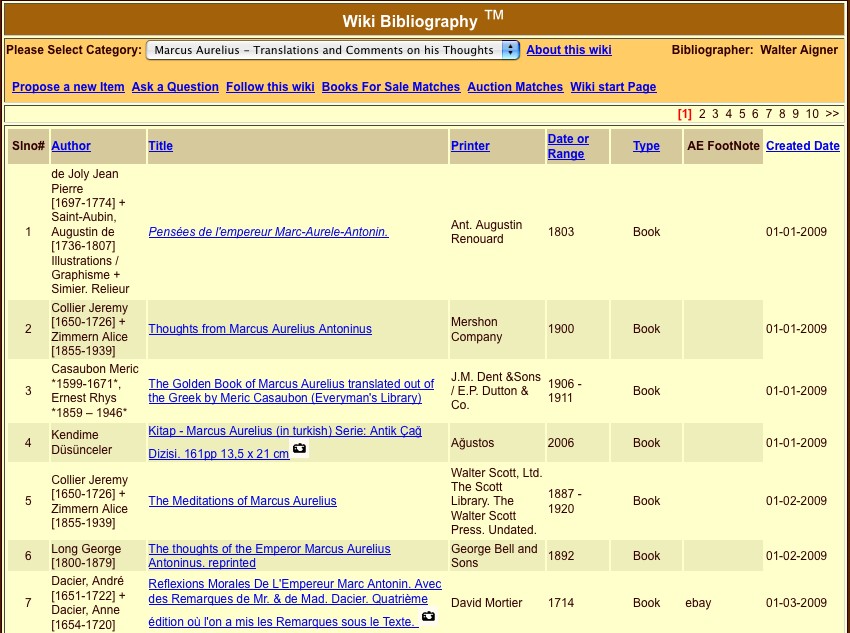Wikis, The Next Step
- by Bruce E. McKinney

Every month new Wikis will go live
For the dealer who lists material on a venue that matches every day against the Wikis, matches are created automatically. If the subject is President Garfield, and there is a Wiki on the subject, every stray item in time will find its way into the matches: campaign buttons and literature, his autopsy report, newspaper accounts, photographs and letters. Such diverse material creates a potential feast of possibilities.
This month we have introduced significant changes on the site. Gone is most of the complexity that went a long way to explaining why almost 20% of our research members have doctorates. In place of a menu that rivaled Adobe Page Maker for complexity is a simple list of seven categories listed on the side bar under the sign-in box that is also expressed as a pie-chart accessible via the pie-chart symbol on the tool bar. We believe AE has become seven functional parts: Books for Sale, AE Monthly, Upcoming Auctions, the AE Database and Premium Services, a ubiquitous Other and Wiki Bibliographies. Six months into their introduction Wikis now claim a slice of the pie chart. They will become important because they respect the collector’s time.
Wikis are prepared to match material from diverse sources whether it's on eBay or elsewhere but, for us to match such material we need to know it is appropriately described. Many eBay seller spam their listings to create matches and no collector wants to be bothered with intentionally phoney matches. If your listings on eBay are done professionally, we should be able to match them and welcome the opportunity to do so.
In the meantime we also provide an alternative service, Matchmaker, that acquires matches from across the net every day and makes them available for a two to three minute analysis that lets collectors understand daily flow of fresh material online. Wikis are the public part, Matchmaker the private alternative for accomplishing similar objectives.
The difference between them is that Wikis aggregate the market and thereby raise prices. Many collectors may think this unappealing but it raises the prices for everyone. Collectors have always been able to more easily buy than sell. Wikis create an open market for specific subjects by creating an easy way for hundreds of collectors to follow a subject. Hence, when sometime in the future a collector wants to sell he has a ready market to reabsorb the material he has prized over his collecting life. Such liquidity will support prices and encourage collecting interest. Liquidity has never been part of the collecting model. Via Wikis liquidity is assured. Seen another way, at auction two or three bidders typically make a contest. In Wikis, in time, hundreds will be involved. Many will buy and prices find appropriate levels based on actual supply and demand, a major step forward from the arbitrarily set prices that today more often reflect wishful thinking than reality.